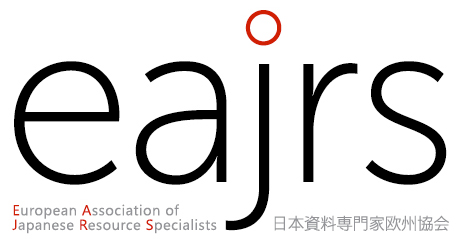![]() Isomae Jun'ichi
Isomae Jun'ichi
International Research Center for Japanese Studies. Professor
Promoting Digital Humanities through International Team Research: A Study of the Beginning and End of the Modern Japanese Nation-State Using the IRCJS Collection of Letters to Tetsujiro Inoue and the Seita Toma Archive
This presentation introduces an international collaborative research project, digital humanities research on the beginning and end of the nation-state, which is being conducted by the team research of the International Research Center for Japanese Studies (IRCJS).
There are two kinds of our research materials. The first is 140 letters to Tetsujiro Inoue in the collection of the IRCJS Library, a resource for examining the beginnings of the Japanese nation-state. Inoue Tetsujiro (1856-1944) was a professor of literature at Tokyo Imperial University, a scholar of the history of Japanese philosophy, and a well-known ideologue who supported Japanese imperialism in its formative period.
The second is the 15,000-piece Seita Toma Archive maintained by the presenter. Seita Toma (1913-2018) is a leading Marxist historian in postwar Japan and a well-known scholar of the nation formation in ancient Japan and the shaping of ancient East Asian world. His archive consists of correspondence, diaries, research notes, and books in his collection. His activities date back to the prewar 1930s, and he had conducted practical research on the demise of the capitalist state, including the struggle against American colonialism in the postwar period and consideration of the future of the socialist state.
Both Inoue and Toma formed their thought in dialogue with East Asian and Western philosophers. To organize the materials and publish a digital catalog with explanatory notes, this project will collaborate with the National Museum of Japanese History in Japan, and also with UCLA, Seoul National University, the University of Zurich, as a base for research in each language. We hope to make this archive available to a wide range of researchers, not only those who use Japanese, in order to achieve the internationalization of Japanese studies.
国際共同研究を通したデジタル・ヒューマニティーズの研究推進方法 -- 日文研所蔵・井上哲次郎宛書簡と藤間生大アーカイブを通した、近代日本国民国家の始まりと終焉の考察
本報告では、国際日本文化研究センター(日文研)の共同研究会で進めている国際共同研究プロジェクト、国民国家の始まりと終焉をめぐるデジタル・ヒューマニティーズの内容を紹介する。
研究対象である資料は二種類。日本の国民国家の始まりを考察する資料として、日文研図書館が所蔵する井上哲次郎宛書簡140点。東京帝国大学文学部の教授、井上哲次郎(1856-1944年)は日本哲学史の研究者であり、形成期の日本帝国主義を支えるイデオローグとして知られた人物である。
もう一つの資料は磯前が管理を任されている15,000点に及ぶ藤間生大アーカイブである。藤間生大(1913-2018年)は戦後日本を代表するマルクス主義歴史学者。古代日本の国家形成、および東アジア世界形成の研究者として知られる。そのアーカイブの内訳は、書簡・日記・研究ノート、そして蔵書からなる。その活動は戦前の1930年代に遡り、戦後のアメリカの植民地主義との闘争、社会主義国家の行方の考察など、資本主義国家の終焉について実践的な研究活動を展開してきた。
井上と藤間について共通するのは、東アジアや欧米の思想家との対話のなかで思想形成をしたことである。そのため資料整理、さらに解題を伴うデジタル目録刊行のために、英語・韓国語・ドイツ語の拠点となる大学としてUCLA、ソウル大学、チューリヒ大学、そして日本の国立歴史民俗博物館との間で進め、日本語使用者に限定されない広範な研究者層への公開を通して、日本研究の国際化を果たしたい。
